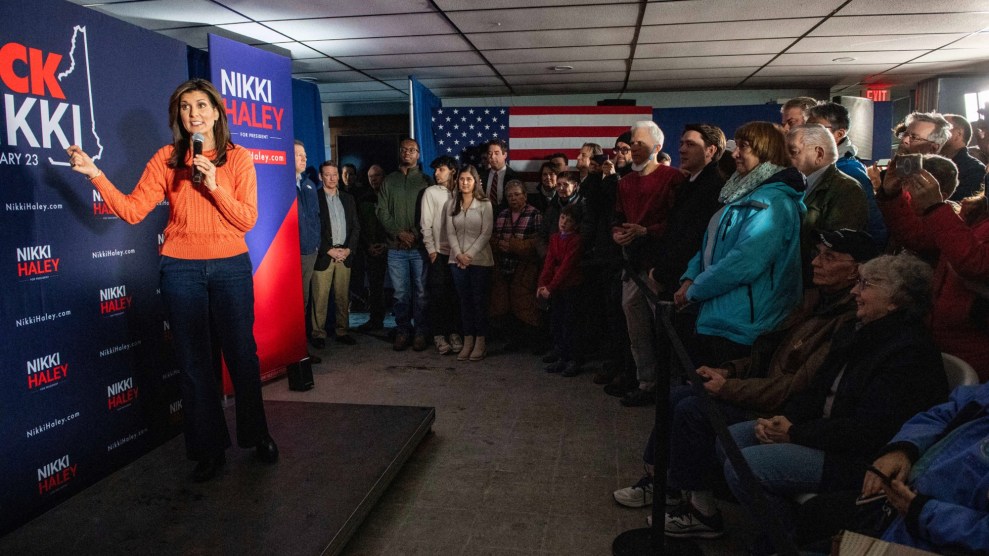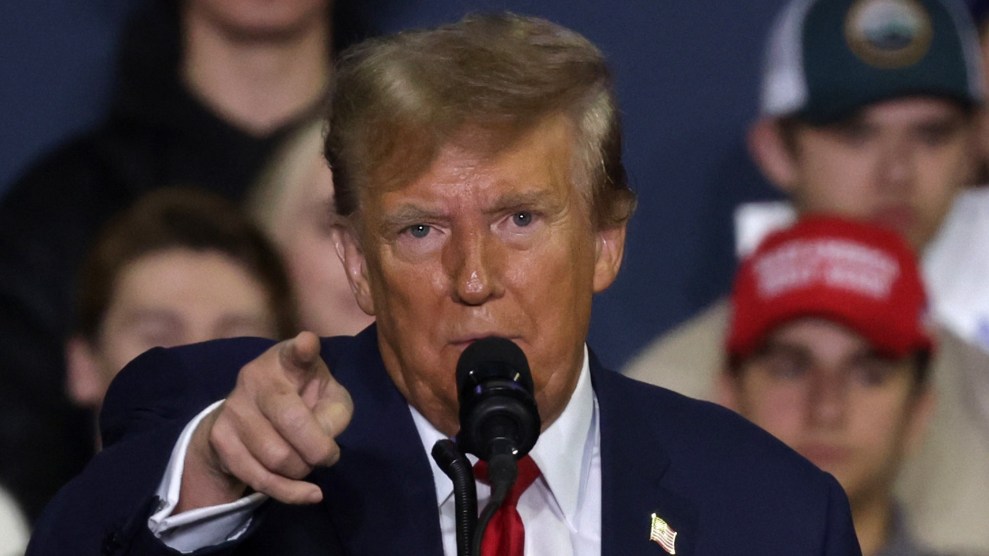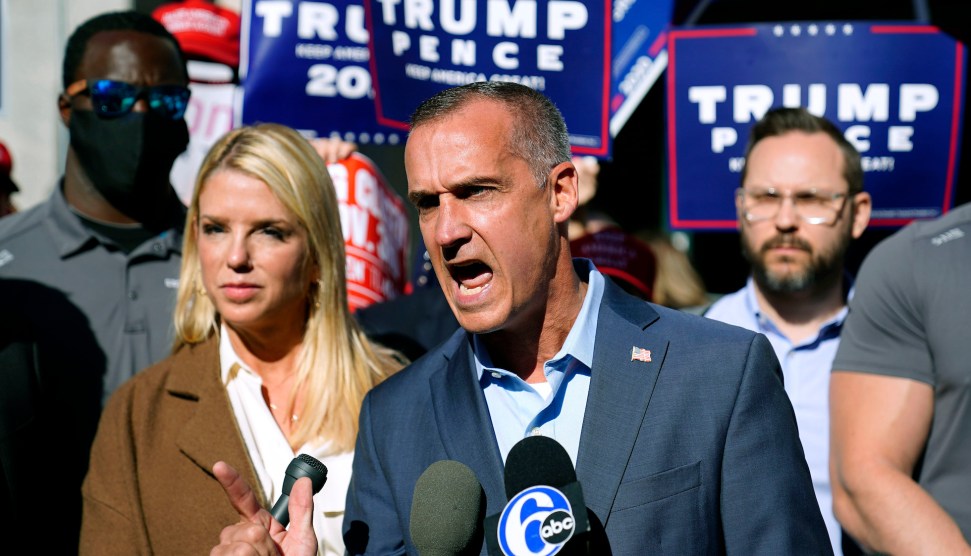
Republican presidential hopeful and former UN Ambassador Nikki Haley speaks during a campaign event in Franklin, New Hampshire on January 22, 2024. Joseph Prezioso/AFP/Getty Images
The stuffy VFW hall in the Hallmark-esque town of Franklin was swarmed with “independent” New Hampshire voters who came to see Nikki Haley make her closing pitch the day before the state’s pivotal Tuesday primary contest.
“I just feel like she could bring people together. She’s attracting a lot of independent, undeclared voters, which I think is a really good thing for the country,” said New Hampshire voter Cathy Kuvec, who says she was a “Republican my entire life, until Donald Trump.”
The sub-200 person crowd responded in golf-claps to Haley’s tight, 17-minute stump speech about e-verify immigration vetting, out-of-control housing costs, balancing the federal budget, and moving on from the “chaos” that “rightly or wrongly” follows Donald Trump. Overall, the voters’ reception of her vision as a presidential candidate was positive but restrained—especially in comparison to the fanatical reactions Trump elicits from his boisterous base.
If it came down to President Joe Biden versus Haley, said a Tilton, New Hampshire resident named Bob, “I would probably go Haley.”
Though Bob was on the fence even after seeing Haley speak and watching Biden lead the nation for three years, he likely won’t be faced with such a choice. Because if the crowd seemed middling towards Haley, it’s because their politics in general are middling, too.
“I have been an undeclared, independent voter since 1972,” said Peter Slaton, a retired paramedic who plans to vote for Haley Tuesday. “I have never voted for a straight ticket.”
And therein lies both Haley’s chief asset and her primary problem. Her electoral sweet spot consists of modern political misfits: fiscally conservative and socially moderate voters who think Trump is a bully, or even an authoritarian threat to democracy, and who believe that President Joe Biden is too old, too soft on immigration, or not tough enough on reigning in federal spending.
“To be honest, I am disheartened by both parties. I think both major candidates are too old. And Trump is the most authoritarian figure I’ve seen in politics in most of my lifetime. I think he needs to be deposed,” said Bob.
In a highly educated, predominantly white state where 39% of voters don’t declare any party affiliation, swaths of New Hampshire residents probably share the Tilton man’s sentiments, right? But not so fast. While there were plenty of these swing voters in Franklin on Monday morning, the state as a whole is far more partisan than party affiliation numbers might suggest.
“There’s like this myth…that these undeclared voters—these independents, as they’re unfortunately termed here—are a bloc of voters, and they’re really not. There’s really three distinct groups,” says Andrew Smith, a University of New Hampshire political science professor and the director of the university’s Survey Center.
Smith says about 30 percent of undeclared New Hampshire voters vote consistently Republican. About 35 percent consistently vote for Democrats. Of the remaining third of the third, some are partisans who aren’t registered to a party because they don’t vote in primaries and thus have never had to declare their affiliation.
“Then you get a few people that are kind of like thoughtful independents,” Smith adds. “People that actually do pay attention to both sides of the political spectrum, and aren’t locked into one party. But that’s a very, very small segment of the electorate. The best I’ve been able to estimate is that only about 3 percent, maybe as high as 5 percent, are people that will vote in one party’s primary in one cycle and then go over and vote the other party’s primary.”
Even if Haley turns out all of these true swing voters, it will be difficult for her to compete with Trump’s incredibly loyal and staunchly conservative fanbase. After all, he won the state by a 20-point margin in New Hampshire’s 2016 GOP primary.
Closing poll numbers ahead of the nation’s first primary face-off show he’s galloping towards another commanding victory. The final Globe/Suffolk/NBC10 tracking poll shows 60 percent support for Trump versus Haley’s 38 percent, the largest margin of the week.
The rally attendees I spoke to were hopeful but realistic that the candidate they like—but don’t love—will somehow usurp Trump come Tuesday.
“Well, I’m pretty sure she’ll be at least second,” joked Slaton, who disagrees with Haley’s anti-union stances. “But I don’t think she will beat Trump.”
















